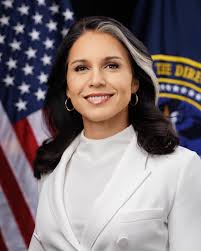
Introduction
Tulsi Gabbard, the former U.S. Representative from Hawaii, has emerged as a notable figure in American politics, gaining attention for her progressive positions and unique background. As a two-term congresswoman and a veteran, her perspectives on foreign policy, healthcare, and civil rights resonate with many voters. Gabbard’s political journey is significant not only for its contents but also for the ongoing discussions regarding the role of youth and diversity in political spaces.
Political Career
Gabbard made history in 2012 when she became the youngest woman ever elected to Congress at the age of 31. During her tenure, she aimed to bridge divides and emphasized the importance of dialogue. She is known for her non-interventionist stance on foreign policy and has opposed regime change wars, believing that it often leads to negative consequences for both the U.S. and the countries involved.
In 2020, Gabbard ran for the Democratic nomination for President, where she challenged the establishment by advocating for universal healthcare and environmental initiatives. Although she did not secure the nomination, her campaign garnered significant grassroots support. In a notable move, Gabbard later announced her departure from the Democratic Party in 2022, citing increasing divisiveness within the party and a shift away from the principles she values.
Recent Developments
In recent months, Gabbard has continued to make headlines with her outspoken views on international relations and domestic policy. Her comments regarding the situation in Ukraine and her analysis of U.S. involvement in foreign conflicts have sparked both support and controversy. Critics argue that her views risk undermining international support for Ukraine, while supporters commend her for maintaining a consistent anti-war stance.
Gabbard has also expressed her thoughts on the current political climate in the U.S., emphasising that the rising polarization is detrimental to democracy. She advocates for open conversations that can help heal the nation’s divisions and fortify the political landscape.
Conclusion
Tulsi Gabbard’s political journey reflects a blend of progressive ideals and experiences that distinguish her from many of her contemporaries. As she continues to navigate her post-Congress career through public speaking and activism, her voice adds an important element to the conversation about U.S. foreign policy and the future of political discourse. The significance of her experiences is further amplified as discussions around political identity, integrity, and the responsibilities of elected officials play a crucial role in shaping the future landscape of American politics. Ultimately, Gabbard’s trajectory prompts readers to consider how diverse narratives can influence mainstream political ideologies.
You may also like

The UKIP Party: Recent Developments and Future Outlook
